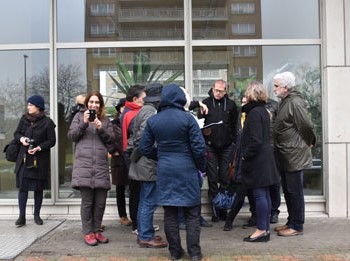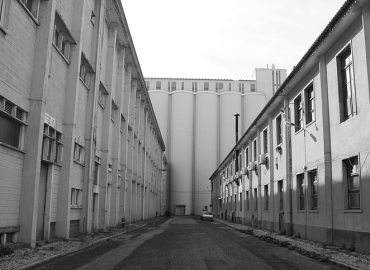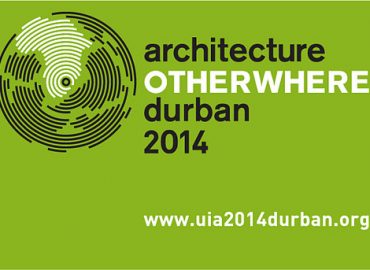The project “Reuse of Modernist Buildings – Design Tools for Sustainable Transformations” submitted to the ERASMUS+ Programme 2016, funded by the European Commission, was approved last July.
Docomomo International is one of the project partners, together with the following High Education institutions, with complementary experiences and competences in the field of design methodology, practical adaptive reuse, refurbishment and improvement and policy-making on housing and urban development:
HS OWL, Detmold School for Architecture and Interior Architecture – Detmold, Germany (Coordinator);
ITU, Department of Architecture – Istanbul, Turkey;
ULisboa, Instituto Superior Técnico – Lisbon, Portugal;
Universidade de Coimbra, Faculty of Science and Technology – Coimbra, Portugal;
University of Antwerp, Faculty of Design Sciences – Antwerp, Belgium;
“This project RMB wants to initiate an educational framework of common definitions, approaches and methodologies on a European level. It is based on existing research, educational practices and reference projects in the program countries and associated states. Demographic and climate chance has resulted in huge qualitative and quantitative challenges and demands for the European building sector. The need for suitable and affordable housing in the city centres and urban agglomerations is increasing and cannot, and should not, be fulfilled with new constructions only. A major task for the building industry should be realized through the refurbishment of the existing housing stock, as well as conversion from other building typologies such as warehouses, offices and public building with special focus on the post WW2 modern era. Due to discrepancies in the European job market and employment situations, graduates are well aware of the fact that they may have to leave their country to work in a different country or to be able to work in their countries but in international projects. In several international networks Bachelor´s and Master´s students already have the opportunity to get familiar with the challenges and requirements of the global job market in the building sector. This experience related to language training, intercultural and interdisciplinary competences are very much appreciated by the students as relevant for their professional future. RMB will add an extra level to this by not only offering a coherent international study program, combining the local and the international but also by inserting in this curriculum cooperation with industry and with other institutions to investigate and solve relevant practical, technical and societal questions. Students get acquainted with industry and with praxis via internships, graduation assignments, conferences, workshops and guest speakers. This connection between academic education and the practice is perceived as an asset for the future profession of the graduates. The participating partners are convinced their cooperation, with specific knowledge and input regarding spatial patterns, cultural heritage, climate and construction principles, social and technical evaluation and the monitoring of built spaces. Creating a well-balanced adequate curriculum for preparing graduates for this international job market and strengthen the European common ground in this specialized expertise. So first of all students will benefit from this, secondly the building industry as well as authorities will profit and of course in the end the urgent European topics on human habitat will find better solutions. RMB is innovative in the sense that it will contribute to the urgent speed up of the transformation of our building stock, by better job chances for students in the field, generate more jobs for the building industry as a whole and to improve people´s lives and build greener and better societies. Thus following very close the definition of the EU Commission on innovation. RMB makes knowledge and existing teaching formats accessible on a European level. Specific parts from the curricula of the partner institutions are inserted in to a comprehensive well balanced educational pack. The combination of these contributions forms a unique program pool. The teaching formats contribute to the execution of the EU targets on Modernisation Agenda´s priority areas and the implementation of the 2013 Communication on opening up education. RMB will explore combinations of traditional e-learning forms, on site events such as conferences and workshops as well as extended very innovative e-learning options in digital fabrication and building integrated management (BIM). It will improve the possibilities of a remote teaching in design education.”
The 2nd RMB Transnational Meeting took place in Antwerp, Belgium, last 6 and 7 February 2017, hosted by the Faculty of Design Sciences of the University of Antwerp. The Secretary General of Docomomo International, Zara Ferreira, participated.





